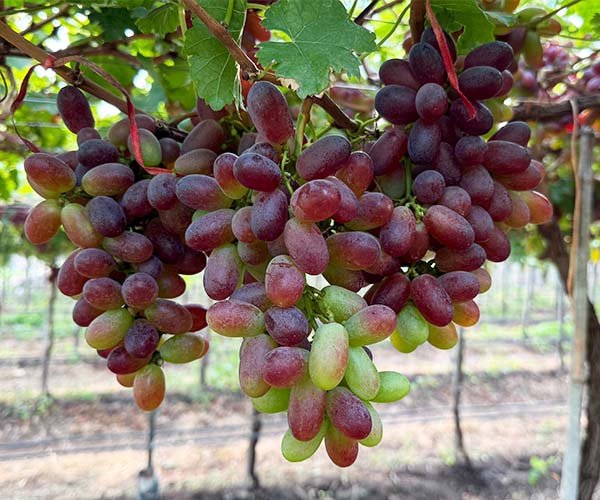Polyglutamic acid (PGA) is a naturally occurring biopolymer composed of glutamic acid monomers linked by peptide bonds. It is produced through microbial fermentation, primarily by certain strains of bacteria, such as Bacillus subtilis. PGA is highly water-soluble, biodegradable, and non-toxic, making it an environmentally friendly option in various applications.
In agriculture, PGA is valued for its multifunctional properties. It can improve soil health, enhance nutrient and water retention, promot plant root development, and act as a natural biostimulant. Its ability to interact with nutrients and pesticides makes it especially effective in boosting fertilizer and pesticide efficiency, thus supporting more sustainable and efficient farming practices.
Due to its wide-ranging benefits, PGA has gained attention in both the agricultural and biotechnological sectors as a versatile agent for enhancing crop growth and improving soil conditions.
Polyglutamic acid (PGA) can improve the utilization efficiency of fertilizers and pesticides due to its unique properties. Here’s how:
1. Improving Fertilizer and Pesticide Utilization
Polyglutamic acid, a water-soluble polypeptide produced by microbial fermentation, carries multiple negative charges. This characteristic helps prevent the binding of sulfate ions, phosphate ions, and calcium/magnesium cations, thus avoiding the formation of low-solubility salts. This process enhances nutrient uptake and utilization by crops, effectively improving the fertilizer’s efficiency. Additionally, PGA can extend the residence time of pesticides on the surface of crops, acting as an excellent pesticide synergist.
2. Promoting Root Growth and Strengthening Seedlings
PGA stimulates the development of crop root systems, encouraging the growth of root hairs and increasing the plant’s ability to absorb nutrients. It forms a thin film on the surface of root hairs, creating a favorable environment for nutrient absorption and water retention. This enhances the overall health of the plant, especially its above-ground portion.
3. Enhancing Stress Resistance
PGA can bind to receptor proteins on the surface of root cell membranes, triggering signal transduction to activate stress resistance mechanisms. This increases the accumulation of proline and enhances the plant’s ability to adjust osmotic pressure, thereby improving its tolerance to environmental stresses such as cold and drought.
4. Soil Improvement and Water Retention
PGA possesses excellent buffering capacity, which helps balance the pH of acidic and alkaline soils. Its molecular structure contains numerous hydrogen bonds, enabling it to retain moisture in the soil, improve soil porosity, and increase soil aeration and water retention. PGA also degrades slowly into glutamic acid monomers in the natural environment, which can be absorbed by plants, making it environmentally friendly.
By incorporating PGA into agricultural products like fertilizers and pesticides, its multifunctional properties can significantly enhance nutrient and pesticide efficiency, promote healthier root systems, and improve overall crop resilience and soil health.


